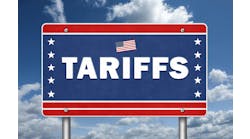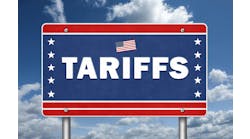A consumer goods company's ability to work with its retail customers — to get the right products to the right stores at the right time — is critical to its success. Historically, the retail supply chain has been one of the most difficult to manage — razor-thin margins force extremely tight delivery windows, with chargebacks seemingly a profit center for the retailers.
The latest tools in supply chain management solutions include retail-driven initiatives such as radio frequency identification (RFID) and collaborative planning, forecasting and replenishment. The goal is to improve supplier/retailer relationships and, ultimately, better sales alike for retailers and shippers. Whether that goal is actually met has as much to do with the technology as it does the efficiencies of the companies involved.
The accompanying illustration maps out an inside view of some of the pressure points, cost considerations and the essential technologies involved in the retail supply chain today.


